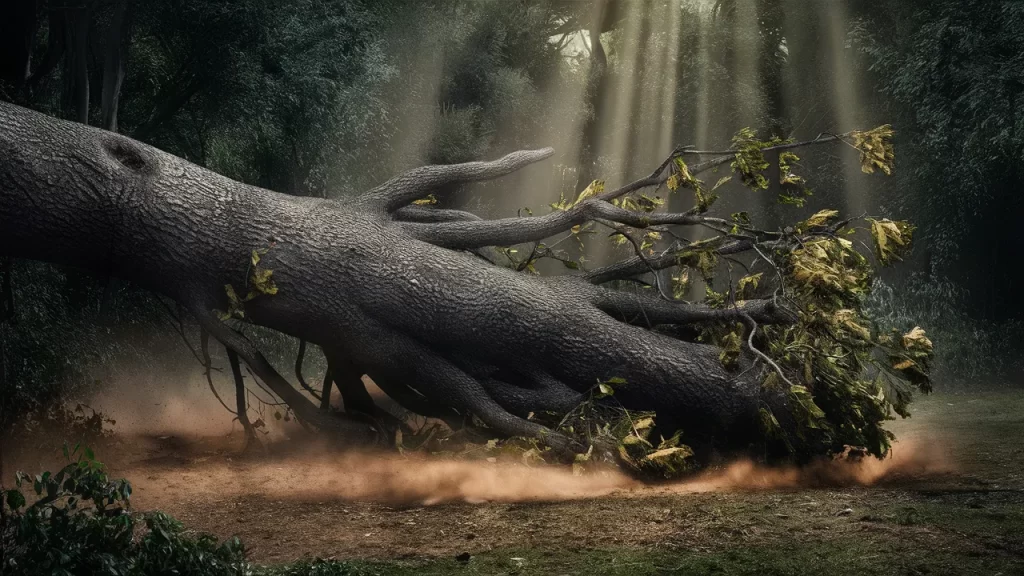Table of Contents
The question, “If a tree falls in a forest and no one is around to hear it, does it make a sound?”, has puzzled people for a long time. This question makes us think about how we understand the world, know things, and what it means for something to exist. Let’s explore this question from different angles, like philosophy, science, and culture.
The Philosophical Perspective

Empiricism and Perception
Empiricism is the idea that we learn about the world through our senses. John Locke, a famous thinker, said that we understand things by seeing, hearing, touching, etc. If no one can hear the tree fall, can we say it made a sound? This makes us wonder if things only exist when someone notices them.
Idealism and Reality
Idealism, especially from George Berkeley, adds another twist. Berkeley believed that things only exist in our minds. So, the tree only makes a sound if someone hears it. Without someone to hear, the sound doesn’t exist. This idea is summed up in “to be is to be perceived.”
The Scientific Perspective
Physics of Sound
In science, the sound is a wave made by vibrations traveling through the air. When a tree falls, it creates these waves. These waves happen whether someone is there or not. But do they count as “sound” without someone to hear them?
Psychology of Hearing
For us, sound is what we hear when our ears and brain process these waves. So, while the waves exist no matter what, the experience of sound needs a listener. This helps us understand both the physical and mental parts of sound.
Cultural and Historical Context
Ancient Philosophical Roots
Long ago, thinkers also asked similar questions. In Zhuangzi, a Daoist book, questions like this show how our experiences can be different for everyone.
Modern Interpretations
Today, this question is also important in science, like in quantum mechanics. In this field, what we see depends a lot on who is looking. This is similar to wondering if the tree makes a sound without anyone to hear it.
Practical Implications
Environmental Awareness
This question also makes us think about taking care of nature. It reminds us that things happen in the environment even when we are not there to see them. The falling tree is like a symbol of bigger environmental issues we might not notice right away.
Technological Advancements
With modern technology, we are always recording and watching the world. So, fewer things happen without anyone noticing. This makes us think about privacy and what it means to be observed all the time.
Read also: Best Places to Travel in November on a Budget
Philosophical Reflections
Existential Considerations
This question also makes us think about why we exist and what reality is. It asks if we are just watching the world or if we help create it by what we notice and do.
Metaphysical Musings
Metaphysics is about the nature of existence. This question makes us wonder about the connection between the observer (us) and the observed (the world). It suggests that reality might be shaped by both what happens and who sees it.
Final Words
The question, “If a tree falls in a forest and no one is around to hear it, does it make a sound?”, is a deep question about reality, perception, and existence. By looking at it through different lenses like philosophy, science, and culture, we see how complex it is. It shows us that understanding the world is tied to how we see and experience it.












